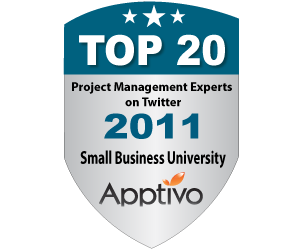 Once upon a time, there was a project manager. This project manager was strong, motivated, and driven to succeed. She was certified, the PMBOK was her friend, and she could create the most amazing Gantt charts ever seen.
Once upon a time, there was a project manager. This project manager was strong, motivated, and driven to succeed. She was certified, the PMBOK was her friend, and she could create the most amazing Gantt charts ever seen.One day, she took on a new project.
This project was large and complex. It involved new technologies and many stakeholders. And the project team was — let’s just say — “challenging.”
But this didn’t scare our heroine. She created a fabulous Gantt chart, established milestones, and documented roles and responsibilities. She set up her cost management, time management, and quality management plans. And she doled out assignments to the project team with a confident smile.
The project went off track quickly.
Team members argued, stakeholders failed to participate, and serious roadblocks emerged. The project manager requested status updates, set up meetings, and reported to the steering team — all things that “good” project managers do. But eventually, she lost the gig.
Why? She either didn’t have — or didn’t use — critical soft skills that today’s strong, next-generation project manager absolutely must not only have — but also exercise.
Like this project manager (any resemblance to actual events or characters is purely coincidental), I come from a very “traditional” project management background. I’m a PMI member and a certified project management professional. The PMBOK is my friend too. Managing the triple constraints of time, cost, and scope motivated me for years. And while my traditional project management skills helped me lead most (but not all) of my projects to successful outcomes, they would have meant nothing without the ability to serve and enable the team, adapt to complexity, and flex appropriately.
I’ve blogged about this in the past, sharing my findings on today’s strong project manager as well as tips to help project managers evolve. But now the topic is once again top of mind, because I’m preparing to speak about the next-generation project manager at the November ProjectWorld & World Congress For Business Analysts. And while I feel that the discipline of project management has evolved to embrace new ideals, many project managers are still overly focused on methodology and neglecting the development of critical soft skills. It’s not about checklists, schedules, and status reports — it’s about people.
Are you seeing traditional project managers evolve to become more people-oriented and flexible? How are they being successful? How can we help people like our heroine enhance their traditional project management abilities while developing and using next-generation soft skills? Share your thoughts and come join me in Orlando.
Thanks!
Mary






